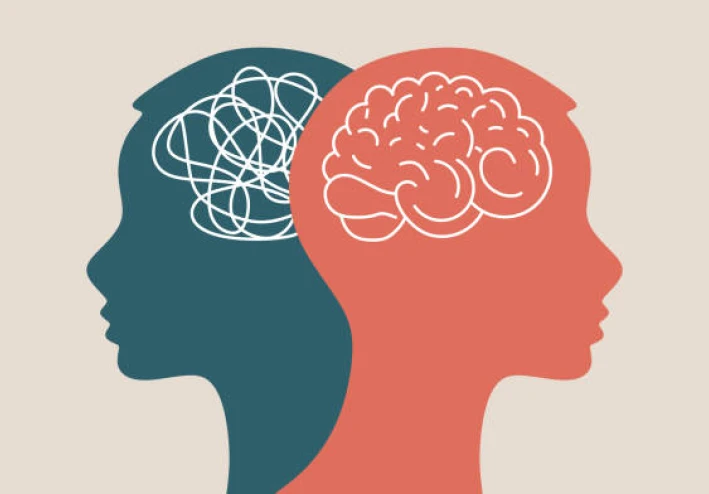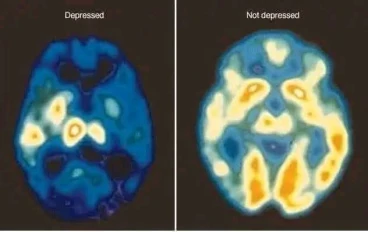
The relationship of mental health to physical health
The Relationship Between Mental and Physical Health: A Comprehensive Guide to Connection and Practical Steps for Improvement
The connection between mental and physical health has become a major focus in medical research, with studies showing that physical and mental health are interconnected. We will explore this relationship, its mechanisms, and steps to improve it.
What are Mental Health and Physical Health?
Mental Health:
Mental health encompasses psychological well-being, emotional stability, and the ability to adapt to life. It includes feelings of satisfaction and happiness.
Physical Health:
Physical health ensures the body is free from diseases, capable of performing activities efficiently, and includes feeling energetic and vital.
How Does Mental Health Affect Physical Health?
Direct Effects:
Stress and anxiety lead to the release of hormones like cortisol, which raises blood pressure, weakens the immune system, and increases the risk of heart disease, diabetes, and depression. Depression is often accompanied by decreased physical activity, poor nutrition, and increased risk of diseases.
Indirect Effects:
Mental stress can lead to addiction to smoking or emotional eating, resulting in chronic diseases like obesity and heart disease.
How Does Physical Health Affect Mental Health?
Chronic diseases like diabetes and heart disease can increase the risk of depression and anxiety. Vitamin and mineral deficiencies, such as vitamin D or iron deficiency, can cause feelings of fatigue and depression. Lack of physical activity negatively affects the release of happiness hormones like endorphins.
Steps to Improve Mental and Physical Health Together
1. *Regular Exercise*: Increases happiness hormones, reduces stress, and improves heart and muscle health. A 30-minute brisk walk daily can improve mood and heart health.
2. *Balanced Diet*: Proper nutrition supports the brain and body. Eating foods rich in omega-3 like fish and nuts reduces depression and improves heart health.
3. *Good and Adequate Sleep*: 7-8 hours of sleep nightly reduces the risk of depression and improves concentration.
4. *Stress Management*: Meditation and deep breathing reduce stress and give the body rest. 10 minutes of meditation daily can reduce anxiety and improve blood pressure.
5. *Social Connection and Psychological Support*: Good social relationships protect against anxiety and depression and provide a sense of belonging. Spending time with friends or family weekly supports mental and physical health.
6. *Regular Medical Follow-up*: Early detection of diseases helps in treating them and prevents their progression, reducing psychological stress. Regular check-ups for blood pressure and sugar levels reassure the person and reduce anxiety.
Real-life Examples
Example 1: Ahmed, a young man suffering from work stress, started experiencing headaches and high blood pressure. After consulting a doctor, it was revealed that psychological stress was the cause. After organizing his time and exercising, his health improved.
Example 2: Laila, a woman who developed depression after a chronic heart disease, started walking daily with a friend and noticed a significant improvement in her mood and health.
Mental and Physical Health
The mind and body are two sides of the same coin, each supporting the other. Start today with simple steps to improve your life.
Daily Plan to Improve Mental and Physical Health
1. Wake up early and organize the start of the day.
2. 10 minutes of light exercise.
3. Healthy and balanced breakfast.
4. Short breaks during work or study.
5. Balanced lunch.
6. 10 minutes of meditation or deep breathing.
7. Social connection.
8. Time for a hobby or loved activity.
9. Light dinner.
10. Review the day and write down thoughts.
11. Sleep early and with quality.
Additional Tips
- Drink 6-8 cups of water daily.
- Reduce caffeine after 5 pm.
- Spend 10 minutes daily in a green space or outdoors.
- Don't hesitate to ask for help from a specialist if you feel severe psychological stress.
Example of a Daily Plan
Time Activity
6:30 AM Wake up + gratitude
6:45 AM Exercise
7:00 AM Healthy breakfast
9:00 AM Work + short break
1:00 PM Balanced lunch
2:00 PM Meditation or deep breathing
5:00 PM Social connection
6:00 PM Loved activity
8:00 PM Light dinner
9:00 PM Review the day
10:30 PM Sleep
Balance in applying this plan is key. Start gradually and don't pressure yourself. Over time, you'll notice the difference in your mental and physical health.































